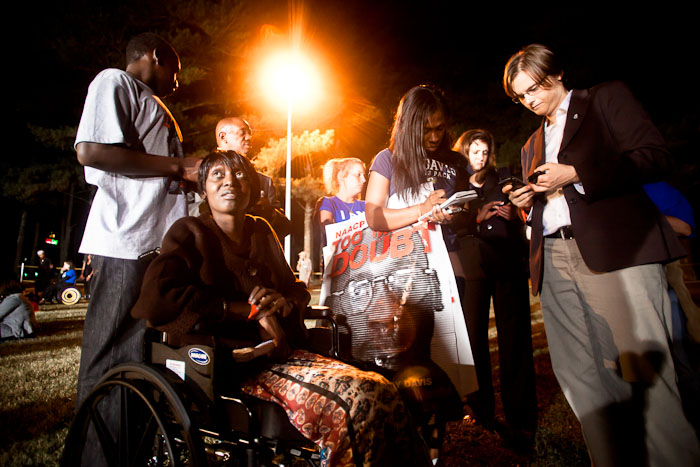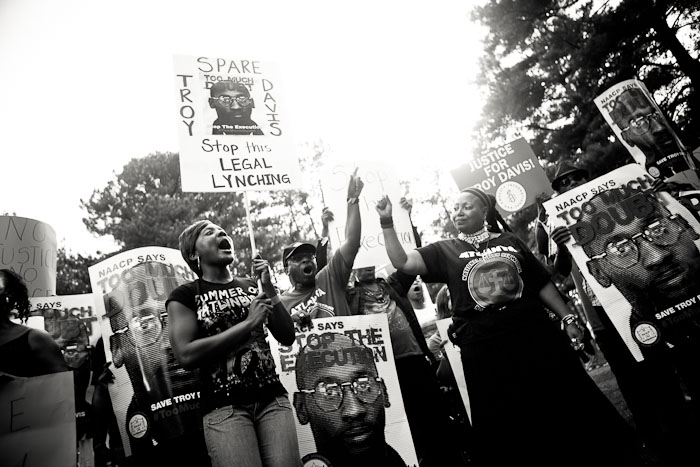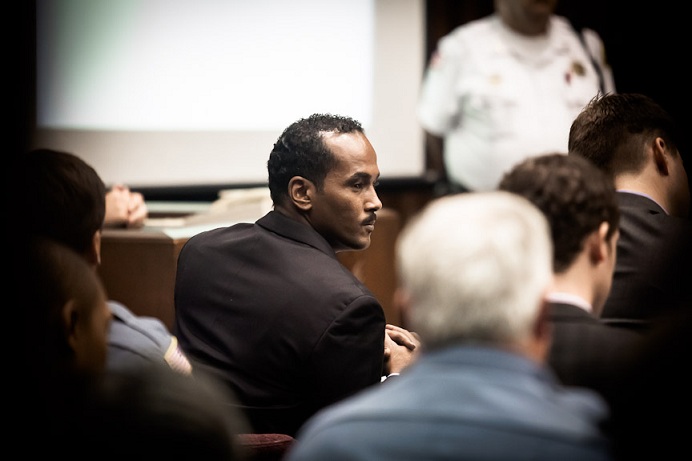
At 11:08 pm, at the exact minute that Troy Davis died, Troy’s sister Martina Correia looks toward the prison while Amnesty’s Laura Moye collects the contact info of a young student who wants to get more involved. © Scott Langley
On this day one year ago, Georgia killed Troy Davis. Join with us today to remember Troy Davis and how he and his story impacted you. Scroll down to the comments section and share your experience.
At dinner yesterday, a friend from the NAACP passionately recounted to me and Kim Davis how she felt on September 21, 2011. I thought about the power of collective memory and the enormous well of energy it represents. The execution of Troy Davis was deeply personal to countless people. Whether they were outside death row in Georgia, at the Supreme Court in Washington, marching in Harlem, gathered outside the US embassy in London or glued to the media coverage, countless people have recounted to me where they were and what they felt that night.
From the prison grounds in Jackson, Georgia, where I was that night, I remember various feelings including adrenal rushes and fatigue from our tireless campaign to prevent what was about to happen. I also remember my anger. How could this state that I had lived in for 16 years see neither a moral nor pragmatic reason to take death off the table for Troy?




 Dr. Martin Luther King, Jr. would be eighty-two years old this year had he not been assassinated in Memphis, Tennessee in the middle of a campaign for the human rights of sanitation workers.
Dr. Martin Luther King, Jr. would be eighty-two years old this year had he not been assassinated in Memphis, Tennessee in the middle of a campaign for the human rights of sanitation workers.
 Tomorrow is the
Tomorrow is the